At Mali Rising Foundation, we know that removing barriers to education changes lives. In Sankama, one of our partner villages, the impact of our Girls’ Project is clear. By covering school fees for girls, we’ve enabled parents to send their daughters to school — a life-changing opportunity for families who would otherwise struggle to afford education. Nantenin’s story makes that crystal clear.
High Scoring Girls Explore New Worlds
At the end of each school year, the Girls’ Project hosts a big adventure for high scoring girls — a trip to the capitol city. For many girls, this will be their first trip to the big city so it is a great motivator to get their grades up. We’ve seen girls work hard to make sure they can get on the bus to Bamako! One of the objectives of the visit to Bamako was to introduce the girls to new things that will help them improve their knowledge in their studies and in Malian culture, but also to entertain them and encourage them to work hard at school. With this goal in mind, we take girls to see inspiring national treasures. This year, the girls visited the National Zoo and a national park.
Mandio Gets Determined
Sue Taylor Middle School in Diorila is one of our schools where the girls had a lot of difficulty overcoming obstacles to their education. But there are girls who still stand up and overcome those obstacles. Seventeen-year-old Mandio D. is one of the girls from Girls’ Project who decided to be agents of change in their community.
Celebrating Girls' Education in the Villages
It’s a hard slog for a girl in Mali to get through the school year. That’s why at the end of each year the Girls’ Project celebrates girls’ achievements with our girls and their entire villages! These Feasts (as we call them) are fun, but also are a great way to engage parents and the whole community in a discussion about the importance of girls’ education. Read on…
Fanta the Future Firefighter
As the school year comes to an end in Mali, I’ve been talking with a lot of the girls who are part of the Girls’ Project. Their stories are so compelling that I want to share some of them with Mali Rising’s supporters. Today, I wanted to share the words of Fanta, a student at Judge Memorial Middle School in the little village of Sankama.
A Hero Who Keeps Going: Korotoumou
In the rural villages of Mali, girls face many difficulties in order to be able to study. Some live very far away from school, and others face family problems. Through my interviews this month I have met girls who each have a unique story, but each was able to overcome these difficulties despite their young age. Because of their determination, they were able to continue to go to school and build a better life for themselves, and for their families. I wanted to share just a few of the stories that most moved me with you all. I’ll start with the story of Korotoumou, told in her own words.
Mothers Standing Up for Girls
By Hindaty Traore, Girls’ Project Manager
It's a Friday morning under a blazing sun in the village of Sankama – home to Judge Memorial Middle School. A group of more than forty people sitting in the school’s Grade 8 classroom with me sat right in front. In front of the crowd, I lead a meeting with the mothers of students in Sankama, a member of the school management committee, and the school principal.
All families are committed to the academic success of their children. However, this success depends on the dialogue between school staff and parents as well as their involvement in supporting their children's education.
To be able to monitor their children's schooling, parents must be well informed of the results, but also of their child's academic behavior. All of these rights were reminded to the mothers during the meeting.
The involvement of parents is very important in the education of girls, especially that of mothers. In Mali Rising Foundation partner villages, we have noticed that parents are less interested in monitoring their children. Everyone sends their child to school but do not know that they have a role to play for the success of their child.
To help change this dynamic, we decided to organize meetings with the women each village to discuss the importance of their involvement in the education of their daughters and how they can do it. We also explained the importance of girls' success for families and the country as a whole. Through the various interventions, we found that mothers do not go to school to know the progress of their daughters, do not follow them at home, and give the girls a lot of domestic work which limits their ability to study.
In our partner villages, women's modest incomes do not allow them to hire someone to help them with housework, so girls help their mothers every day. This means that girls devote less time to schoolwork than school. They have less time to learn and do their homework and this negatively affects their school performance, sometimes causing dismissal or dropping out.
Through our various discussions, the women learned how to help her daughters at home after school, how to go to school each month to check on her child's progress, how to lighten the housework to give time to study and learn.
For the best functioning of the involvement of the mothers of students, we have agreed to hold two meetings a year for the women to discuss their issues and problems. In between these meetings, the women leaders in each village will also remind the mothers of students to follow and give time to their daughters at home, to check in with the school on their daughters’ progress, and other basic strategies.
Sali Diawara's two daughters study at Judge Memorial Middle School in Sankama. Sali says she is involved in the education of her daughters. She explains: “I don’t give my daughters chores when they have to go to school. They only help me on weekends. I would also like them to take private lessons but unfortunately I don’t have enough means.”
Sali herself had the chance to go to school. But she could not continue her schooling because of an early marriage, and she wants her daughters to have a different fate from hers. Thanks to her commitment, her daughters obtain good results -- they are always among the best in their classes. This story encouraged other women at the meeting to do like Sali so that their daughters could succeed too.
The teaching staff of the school also want to help reduce the household responsibilities of girls. Ibrahim Diarra is the principal of Judge Memorial Middle School in Samkama. With his colleagues, they want to organize at least one meeting with parents and traditional and religious leaders to encourage them to support girls' education.
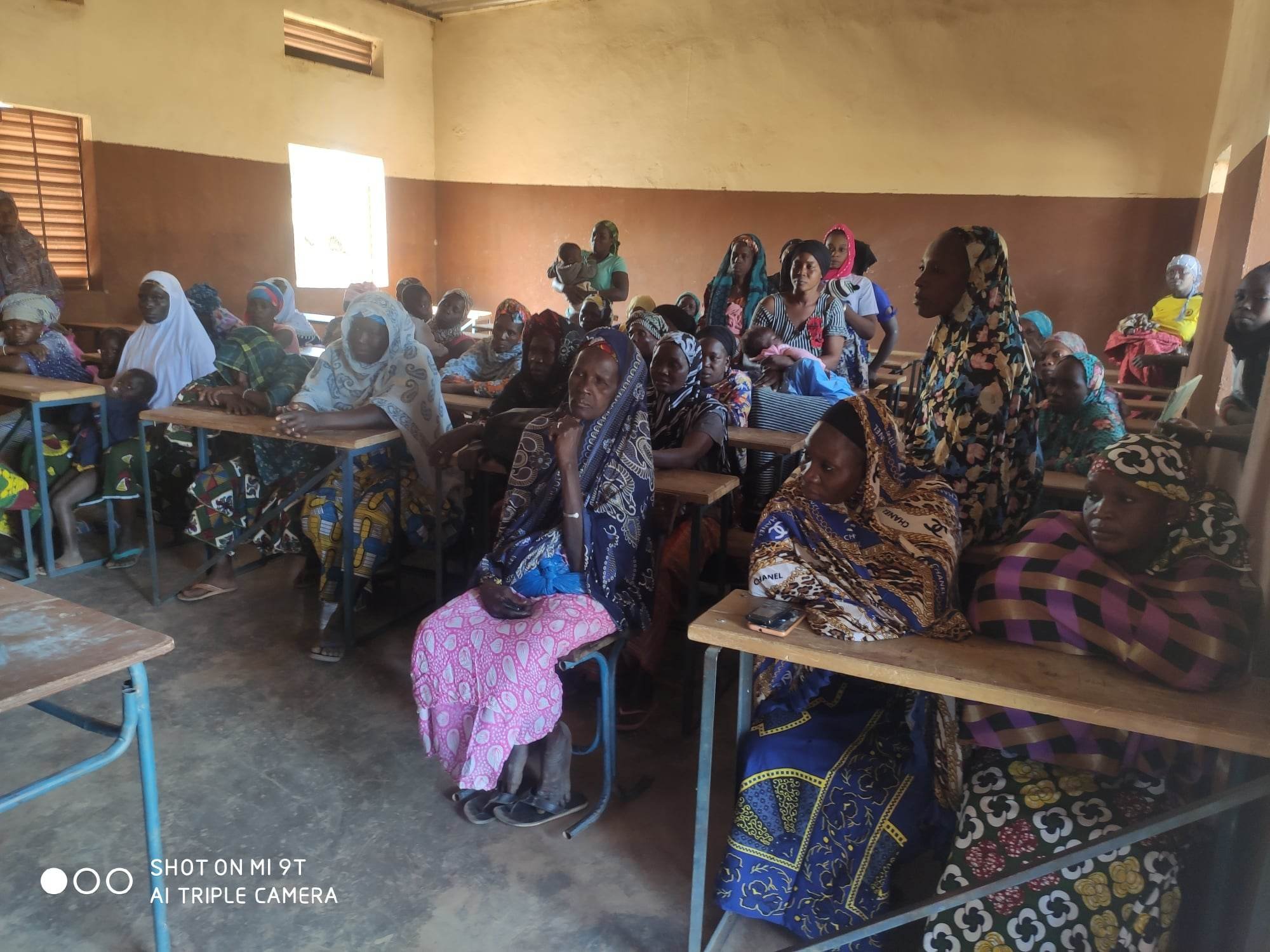
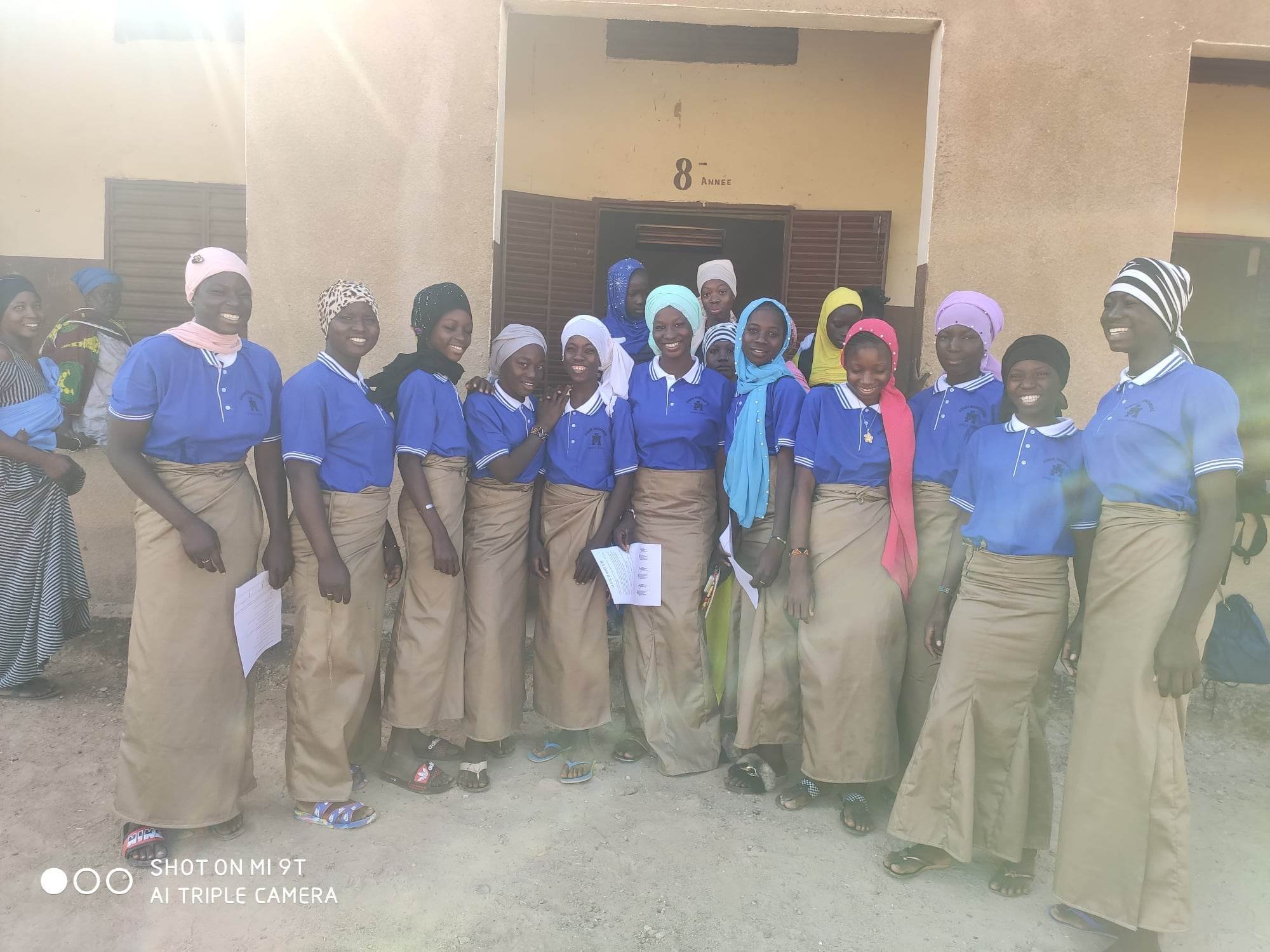
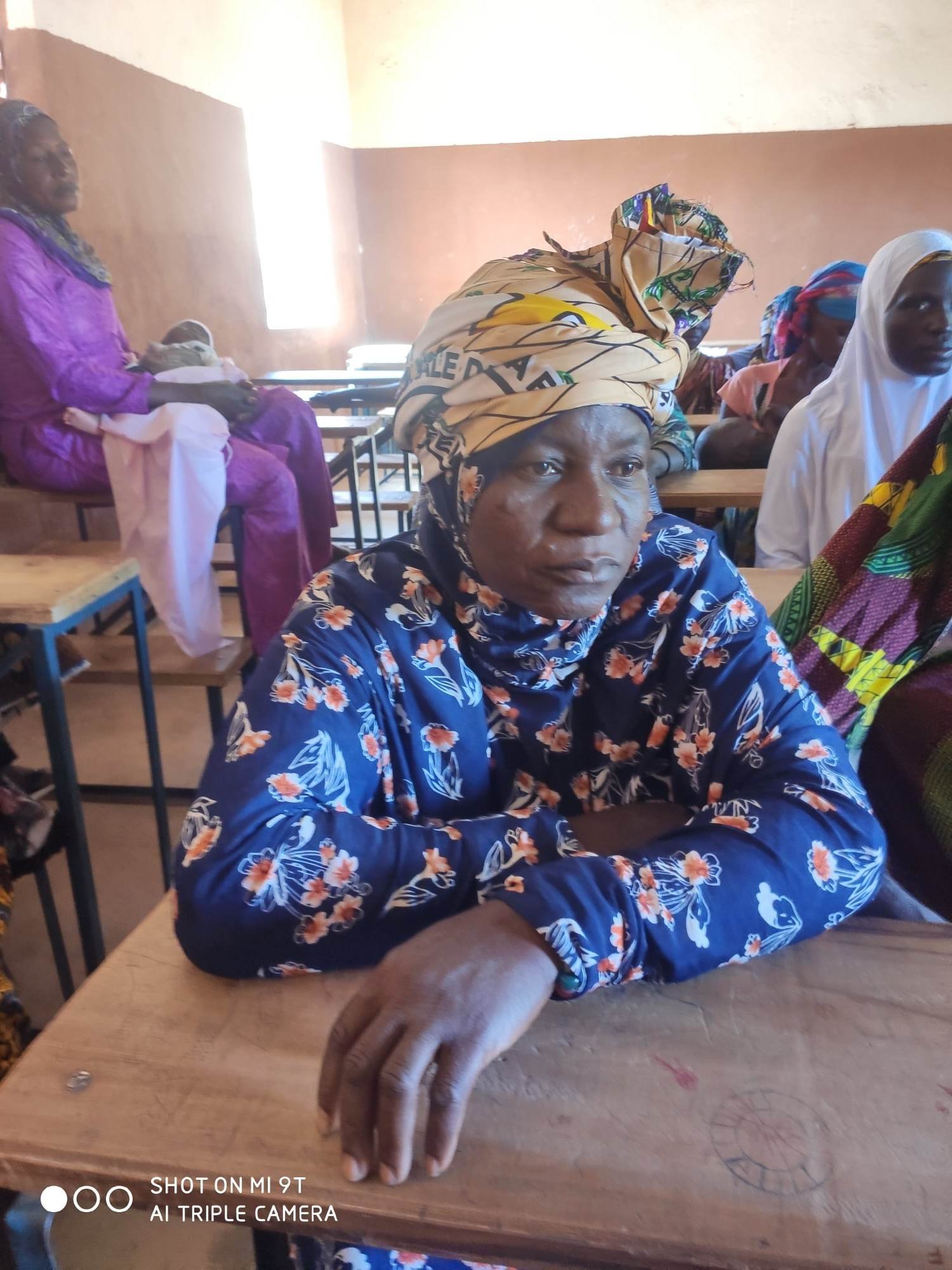
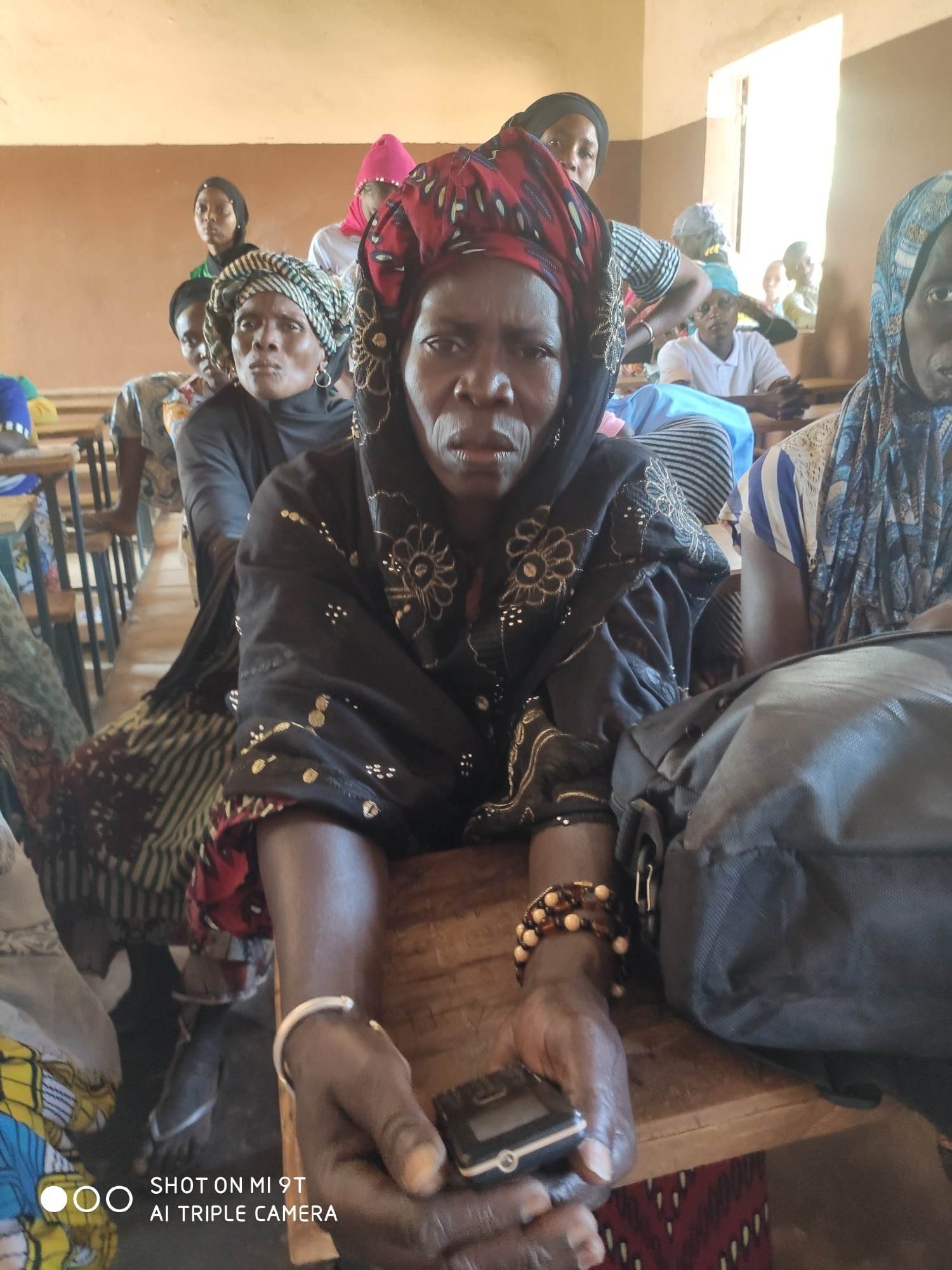
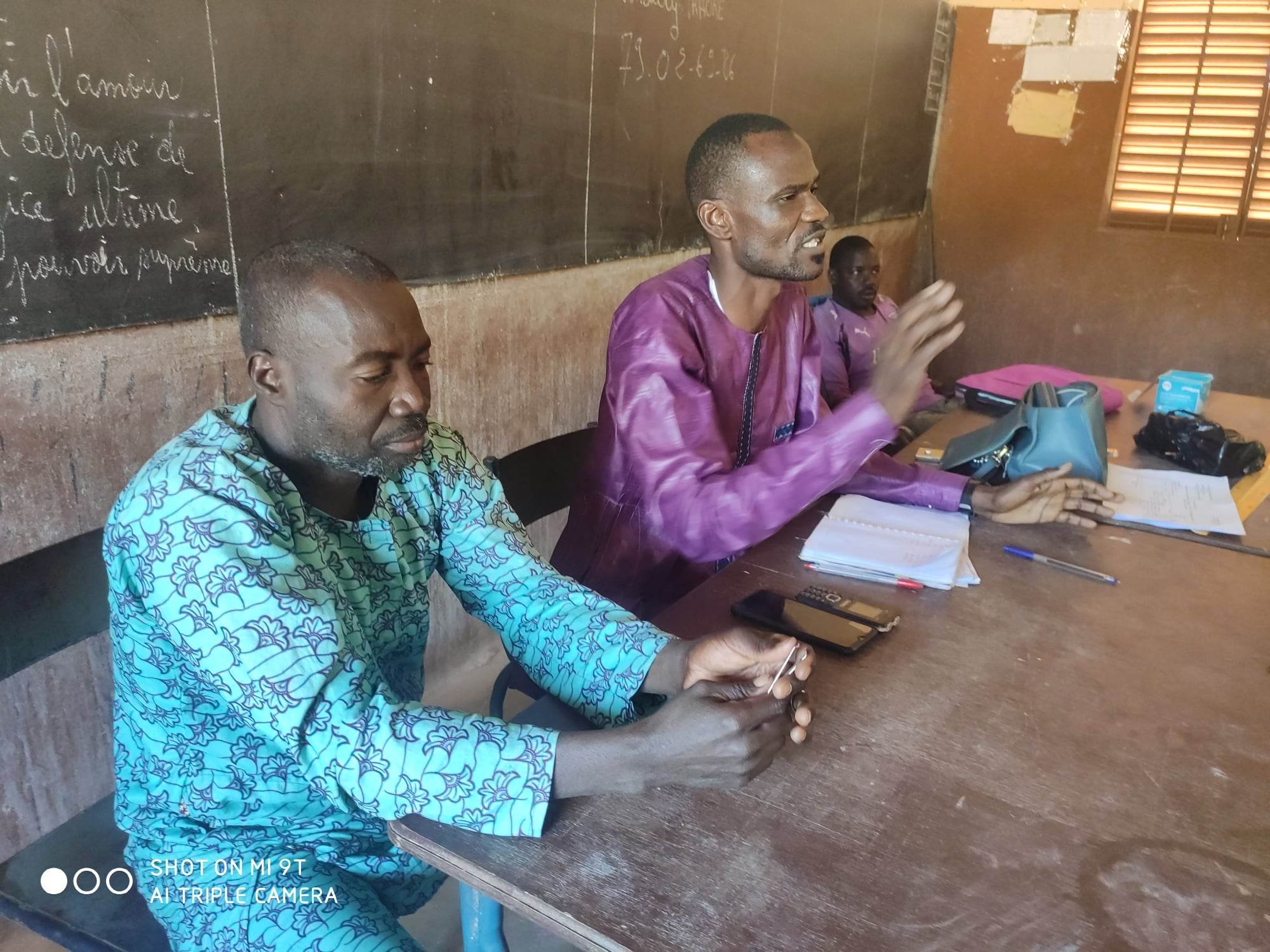
Mr. Diarra explains: “We will raise parents’ awareness of the need to reduce girls’ workload so that they have time to devote themselves to their studies. This is important for their academic success.”
Mah Coulibaly is a housewife in Sankama. She lives with her husband and children. They have two daughters at school. She says: “We don’t have enough resources. My daughters sell my wares. They also help me with other activities. I am aware that this affects their studies. But, I have no one else to help me. I would try to do everything possible to give them time to learn the lessons.”
I drew inspiration from my own story to raise awareness of how girls have more time for their studies when they don't need to spend too much time on household chores. I explained that I help the girls today because I was able to focus on my studies. We concluded our meeting with a short quote “When girls fail, the whole your community has failed, because it is your duty to ensure a better future for them.”
Boys as Allies to Girls
One of Mali Rising’s main goals is to make sure girls have the same chance at education as boys. My co-worker Hindaty leads our very successful Girls’ Project, which implements many strategies to get girls into school and help them succeed there. As part of that work though, we realized that we can’t ignore the role boys could play in helping their sisters — that’s where I come in!
The Hope of Noumousso
A Village Steps Up for Their Girls
Now that the school year is well underway in Mali, I have been checking in with mothers involved in our Girls’ Project Mothers Loan Funds. These funds use revolving credit to help mothers establish small businesses, and the interest is used to pay girls’ school fees. While visiting with the mothers in Tamala, they told me the story of Sitan Samake as an example of the huge changes the Girls’ Project has created in their village.


